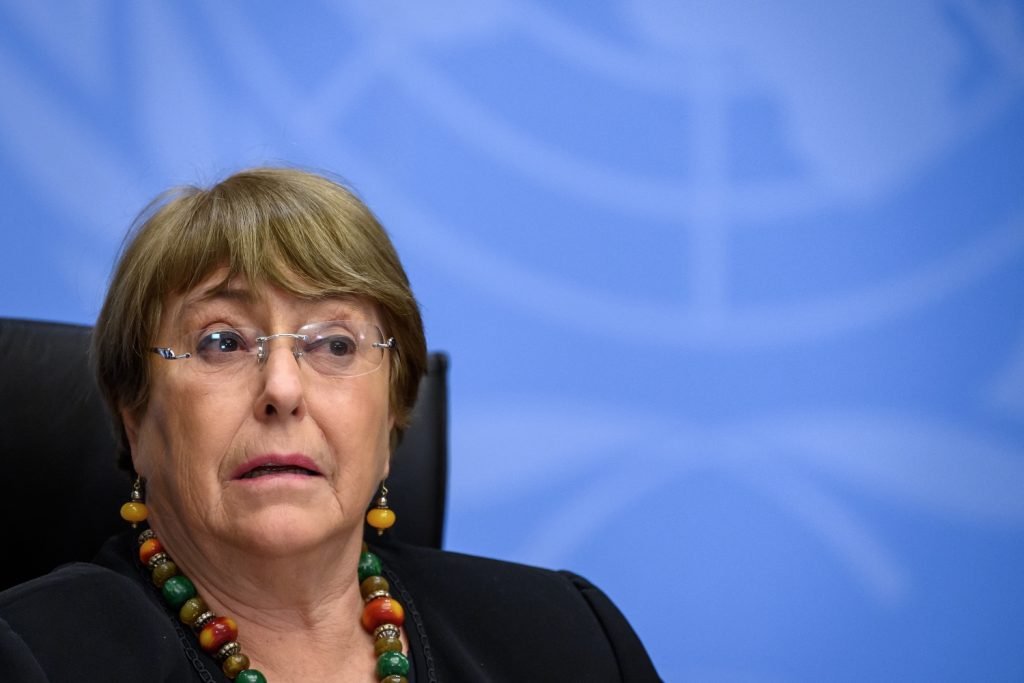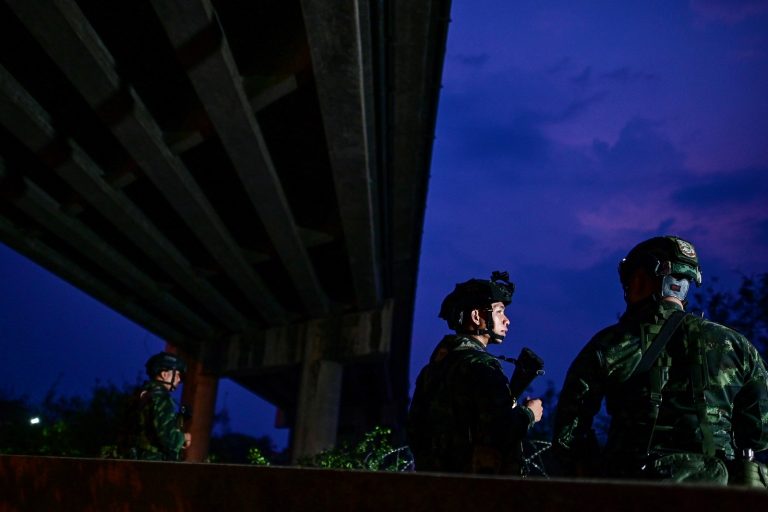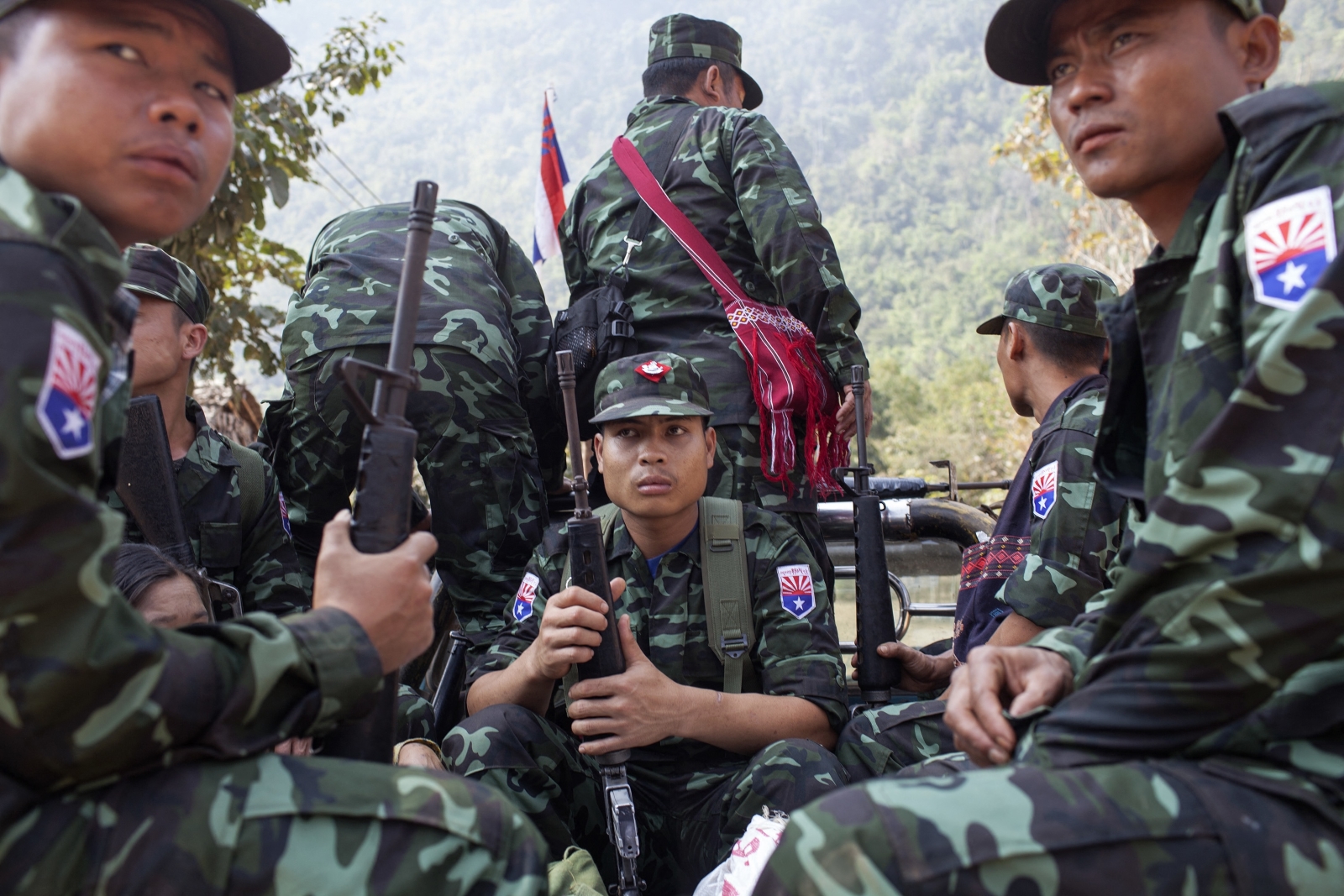Human rights commissioner Michelle Bachelet has warned of a “full-blown” conflict in Myanmar, amid a crackdown that a monitoring groups says has claimed more than 700 lives.
By AFP
Warning of possible crimes against humanity, the United Nations High Commissioner for Human Rights Michelle Bachelet today urged countries to take immediate action to push Myanmar’s military to stop its “campaign of repression and slaughter of its people.”
At least 710 civilians have been killed by Myanmar security forces as of late Monday, including 50 children, according to local monitoring group the Assistance Association for Political Prisoners.
“I fear the situation in Myanmar is heading towards a full-blown conflict,” Bachelet said in a statement.
“There are clear echoes of Syria in 2011,” she warned, referring to the start of a civil war that over the past decade has killed nearly 400,000 people and forced more than six million to flee the country.
Outside of protests, which continue to be met with live rounds and sometimes grenades, several ethnic armed groups in border regions have in recent weeks stepped up attacks on the military and police, raising fears of a broader civil conflict.
The military has retaliated with air strikes, which the Free Burma Rangers – a Christian aid group working in the area – said had displaced more than 24,000 civilians in Kayin State by Saturday.
The Rangers, which provides mobile health services, said the air strikes had killed at least 20 people and wounded more than 40.
The area affected by the strikes is remote and communications are difficult, and AFP has not been able to independently verify the deaths.
Villagers in some areas were unable to prepare their monsoon rice crops because of fears the military would shell them in their fields, the aid group said.
“They are afraid they will have no rice harvest next fall,” it said in a statement.
Military attacks sent a few thousand people fleeing into neighbouring Thailand in recent weeks, but most have returned to the Myanmar side of the border.
In Yangon, authorities are hunting those responsible for an underground newsletter titled “Molotov”.
The publication was started by a group of young activists to fight ongoing internet outages and information suppression.
“The Molotov journal is illegally published,” the state-run Global New Light of Myanmar said, adding that legal action would be taken against those behind it.
At a military tribunal in the city, seven protesters accused over the murder of a suspected informer were sentenced to death, state media said Tuesday. Three of the demonstrators were tried in absentia.
The junta also announced Tuesday that dozens more people had been added to an arrest warrant list of 260 celebrities, doctors and ordinary citizens.
Many are accused of spreading dissent against the military, while medical professionals are wanted over their work at private clinics, which have taken in injured protesters, according to state media.
Meanwhile, in Sagaing Region, a couple were shot dead while delivering milk after junta troops stormed the town of Tamu on the Indian border, according to AAPP.
Cancelled water fights
With violence raging, many in coup-hit Myanmar are vowing to mark this week’s Thingyan festival with protests rather than the traditional water fights.
Some protesters say it would be disrespectful to enjoy the traditional New Year holiday when so many have lost their lives in brutal crackdowns.
Last year’s festivities were called off because of pandemic restrictions.
In parts of Yangon, Monywa and Bago, protesters observed Thingyan on Tuesday by painting pots with pro-democracy messages and placing them on streets with flowers inside.
“Fight for democracy,” a sign sticking out of a line of pots said in one Yangon township.
Others said, “Never give up”.
“We are not having normal celebrations. Even though it is festival time right now, we cannot have fun. We will not be happy until this dictator is overthrown and we will revolt until then,” a university student in Mandalay told AFP, speaking on condition of anonymity because of the danger of arrest.
Another protester named Ray in Yangon said the pots were a way to both welcome the new year and “honour fallen heroes”.
In Mandalay, people placed the pots and flowers on a golden stupa, with signs showing the three-fingered salute that has become a symbol of resistance.
Young people in cities nationwide continued to take to streets Tuesday, some marching with flowerpots.







